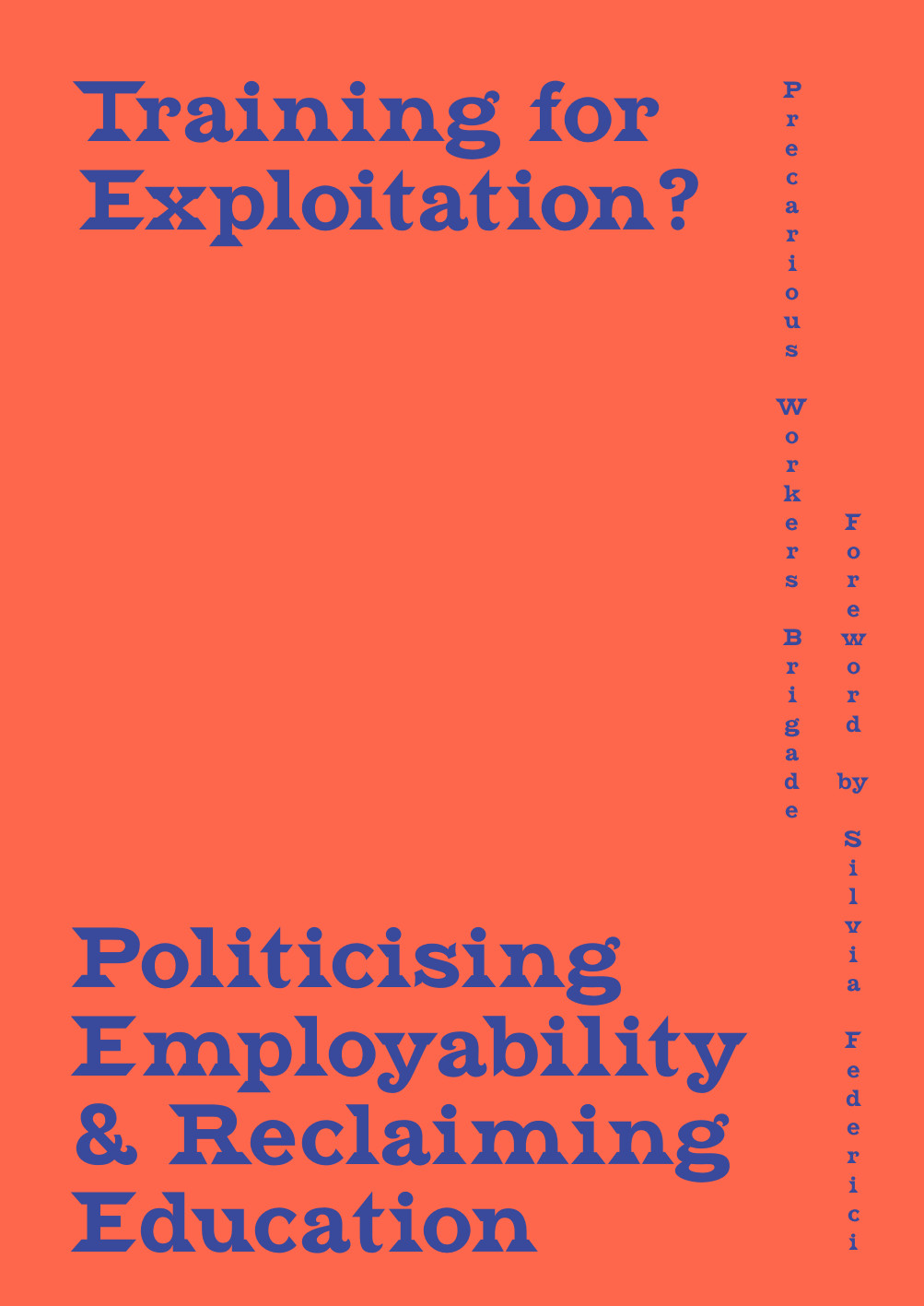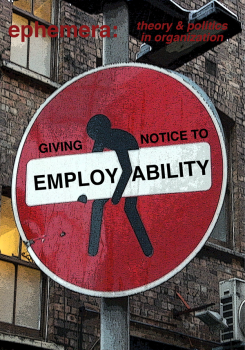Precarious Workers Brigade: Training for Exploitation: Politicising Employability and Reclaiming Education (2017)
Filed under book | Tags: · collaboration, education, employment, labour, precarity, work

“This publication provides a pedagogical framework that assists students and others in deconstructing dominant narratives around work, employability and careers, and explores alternative ways of engaging with work and the economy. Training for Exploitation? includes tools for critically examining the relationship between education, work and the cultural economy. It provides useful statistics and workshop exercises on topics such as precarity, employment rights, cooperation and solidarity, as well as examples of alternative educational and organising practices. Training for Exploitation? shows how we can both critique and organise against a system that is at the heart of the contemporary crises of work, student debt and precarity.”
Foreword by Silvia Federici
Publisher Journal of Aesthetics & Protest Press, London / Leipzig / Los Angeles, 2017
Creative Commons BY-NC-SA 4.0 International License
ISBN 9780615590110
95 pages
Ephemera Journal 13(4): Giving Notice to Employability (2013)
Filed under journal | Tags: · employment, labour, neoliberalism, work

“The neoliberal notion of employability has risen to prominence over the past 20 years, having been positioned as the crux of national, organizational and individual prosperity. To be employable, individuals are increasingly called upon to be self-reliant; aligning themselves to the conditions of an ostensibly fast-moving and precarious global economy. This special issue of ephemera calls attention to the way this current preoccupation with employability tethers questions of equality and human development to the instrumental capitalist obsession with growth and renewal. The 13 contributions to this issue ‘give notice’ to employability as a colonizing attribute of human resourcefulness that promotes marginalization, exploitation and stigmatization. By exploring the type of ‘self’ employability demands, and analysing the consequences of its required engagement, we hope employability will be both noticed and acted upon.”
Edited by Ekaterina Chertkovskaya, Peter Watt, Stefan Tramer and Sverre Spoelstra
Published in November 2013
Creative Commons Attribution-NonCommercial-NoDerivs 3.0 Unported License
ISBN 9781906948214
View online (HTML and PDF articles)
Comment (0)Jeremy Rifkin: The End of Work: The Decline of the Global Labor Force and the Dawn of the Post-Market Era (1995)
Filed under book | Tags: · automation, economy, employment, labour, technology, third sector, work

“Jeremy Rifkin argues that we are entering a new phase in history – one characterized by the steady and inevitable decline of jobs. The world, says Rifkin, is fast polarizing into two potentially irreconcilable forces: on one side, an information elite that controls and manages the high-tech global economy; and on the other, the growing numbers displaced workers, who have few prospects and little hope for meaningful employment in an increasingly automated world. The end of work could mean the demise of civilization as we have come to know it, or signal the beginning of a great social transformation and a rebirth of the human spirit.”
Publisher G.P. Putnam’s Sons, 1995
ISBN 0874777798, 9780874777796
350 pages
Commentary: George Caffentzis (1998).
Comment (0)
